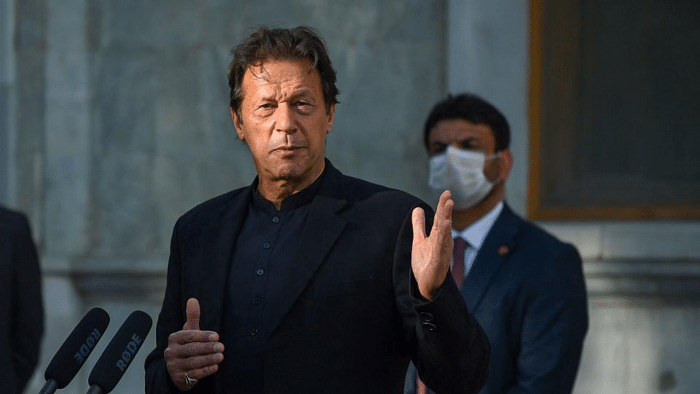
Mindsets, not disputes, are impeding connectivity initiatives among the South Asian and Central Asian nations, External Affairs Minister S Jaishankar said on Friday, countering Pakistan Prime Minister Imran Khan’s statement that huge potential of regional cooperation remained untapped due to the unresolved row over Kashmir.
Jaishankar tacitly blamed Pakistan for blocking connectivity initiatives launched by India. He also took a subtle dig at China for pushing smaller nations in South Asia, South East Asia and Central Asia as well as in other regions into debt-traps with its controversial Belt and Road Initiative.
Pakistan’s Prime Minister was speaking at a conference on connectivity between Central Asia and South Asia in Tashkent on Friday. The conference was hosted by Uzbek President Shavkat Mirziyoyev. Jaishankar represented the Government of India. His counterpart and Chinese Foreign Minister Wang Yi also attended the conference.
Khan did not miss the opportunity to rake up his nation’s row with India over Jammu and Kashmir (J&K). He said that the “unsettled dispute” between Pakistan and India over J&K was a “major challenge” to connectivity initiatives. If the two nations could resolve the dispute, the trade links among China, Pakistan and India as well as the Central Asian nations would lead to economic development for all.
“Unfortunately, because of our disputes, unresolved disputes, the huge potential remains untapped,” said the Prime Minister of Pakistan.
Jaishankar said that the 3Cs of connectivity, commerce and contacts drove economic growth universally and they needed to come together to ensure regional cooperation and prosperity. “The challenge we face is that politics, vested interests and instability can be formidable impediments to its realization,” said the External Affairs Minister.
India has been accusing Pakistan of blocking several connectivity initiatives launched within the framework of the South Asian Association for Regional Cooperation (SAARC), including the ones for facilitating hassle-free movement of trains and trucks within the region. The successive governments in Islamabad have also been rejecting repeated calls from New Delhi and Kabul for facilitating unrestricted transit of goods between India and Afghanistan through Pakistan.
“There are lessons too from our experiences that need to be understood. The real issues are of mindsets, not of disputes,” said Jaishankar, tacitly taking a dig at the Pakistan Prime Minister, who promised to support regional connectivity initiatives. “Blocking connectivity in practice while professing support in principle benefits no one. A one-sided view of trade rights and obligations can never work. No serious connectivity can ever be a one-way street.”
He also said that building connectivity was an “act of trust and must, at the minimum, conform to international law”. “Respecting sovereignty and territorial integrity are the most basic principles of international relations,” said the External Affairs Minister, indirectly referring to China-Pakistan Economic Corridor (CPEC) linking China's Xinjiang Autonomous Region and the port city of Gwadar in southern Pakistan. New Delhi has been opposing the CPEC, because it passes through Jammu and Kashmir (J&K) areas, which India claims to be part of its own territory and accuses Pakistan of illegal occupying.
Beijing has pledged over $70 billion to invest in CPEC. It is one of the flagship projects of the Belt and Road Initiative (BRI), the ambitious cross-continental connectivity project, which Chinese President Xi Jinping launched a few years back, but already triggered controversy due to the predatory lending by the government of the communist country.
“Connectivity efforts must be based on economic viability and financial responsibility. They should promote economic activity and not create debt burdens,” said Jaishankar.
Check out DH's latest videos:
